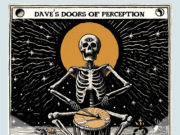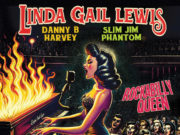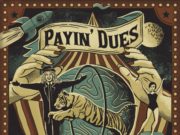Two decades ago, new albums from Madonna, Björk, Brian Setzer and others were spinning away in my portable CD player. Here’s what I had to say about them back then (with some minor editing):
 Madonna
Madonna
Music
Honestly, sometimes I wonder why Madonna even bothers making albums anymore. Oh, I don’t mean that she should retire — I’m just curious why she makes albums as opposed to singles. Which, as anybody knows, are Madonna’s bread and butter. Ever since she first danced her way onto the pop charts with 1983’s Lucky Star, Madonna has expressed herself most successfully — financially and artistically — through a never-ending string of chart-topping hits that are far more memorable than the albums that contained them. (Quick — which album had Papa Don’t Preach? True Blue? Like a Virgin? Who’s That Girl? For the record, it’s the first, but unless you’re a Madonnaphile, I bet you had to look it up just like I did.) Lately, the dominance of Madonna’s singles over her albums has become even more pronounced. Unlike the old days when the Material Girl could be counted on to deliver three or four hits per LP, her more recent discs have begun to fall into a familiar pattern — one massive single and a dozen or so cuts of filler nobody remembers six months later. (Quick — name another song from Ray of Light besides the title track. And don’t say Beautiful Stranger — that was a single. Ditto American Pie. I rest my case.)
Unfortunately, Madonna’s eighth studio album, the imaginatively titled Music, is another lopsided effort. It kicks off with the addictive, groovalicious Parisian disco bounce ’n’ squiggle of the title track, which is admittedly one of Madonna’s best tunes in years. Like the best timeless tracks, it’s almost minimalist in construction — a simple beatbox, a two-finger synth melody, a handful of words and one absurdly simple, impossibly happy message: Music makes the people come together. If only the rest of Music followed that naively upbeat template. Instead, it slowly coasts downhill, losing energy like a raver as the night wears on and the Ecstasy wears off. Granted, Madonna’s tossoffs can be better than other pop act’s keepers; still, that isn’t enough to make the rest of Music bring anybody together. Impressive Instant and Runaway Lover stay with the swirly Eurodisco program, with Madonna allowing her voice to be bent, folded, twisted and mutilated by banks of Vocoders, synthesizers and AutoTuners. In a Cher-meets-Giorgio Moroder kinda way, it’s cool enough that you start to think Madonna just might be on to something. Then, for some reason, she abruptly gets out of the groove with I Deserve It, a mea culpa ballad for midtempo drum machine, gently strummed acoustic guitar and siren-like ’70s synthesizers.
After that, the album never quite recovers. Amazing, with its jingly bounce and raga buzz, is a perfectly fine pop single, although it’s essentially a rewrite of Beautiful Stranger. Nobody’s Perfect is another watery synth ballad. Don’t Tell Me is another acoustic-guitar strummer (co-written with Madonna’s brother in-law Joe Henry), but with a slightly zippier beat and a cut-and-paste background. The last three tracks, What it Feels Like For a Girl, Paradise (Not for Me) and Gone, each seem slower than the last, until Music finally drifts to a halt after just 45 minutes.
But wait — before you write off a Madonna purchase this year, I’d like to suggest an alternative: The extended-single version of Music. There are a couple of different ones floating around — a four-track version and a nine-track monster. If you can find it, go for the latter. It has nine different remixes of the tune — everything from some recognizable radio versions by HQ2 and Victor Calderone to epic-length dance and drum ’n’ bass takes by Deep Dish, Groove Armada and The Young Collective. By comparison, its wall-to-wall grooves make the album seem like the inconsistent affair it is. Plus it’s a half-hour longer than the full-length and costs half as much. With all that going for it, who needs an album?

Björk
Selmasongs
Icelandic alt-diva Björk’s experimental post-pop somehow always manages to defy pigeonholing. This disc of music from the forthcoming film Dancer in the Dark — her debut acting performance, which earned her a Best Actress award at Cannes — is typically hard to categorize. Part soundtrack, part score, longer than your typical EP at 32 minutes but not quite an album and definitely not the long-awaited sequel to 1997’s Homogenic, Selmasongs is dominated by orchestral manoeuvres and late-night, trip-hoppy moods — that is, when the always unpredictable Björk isn’t combining all those swelling strings and bluping synthesizers with abrasive, post-industrial drum ’n’ bass (like she does Cvalda, a duet with co-star Catherine Deneuve), or applying them to grooves built from the rhythms of railway wheels (as on I’ve Seen It All, a twisted, sorta-romantic ballad with Radiohead’s Thom Yorke). Yorke and Deneuve on the same album?! Björk may have seen it all, but now I’ve everything.
 Brian Setzer Orchestra
Brian Setzer Orchestra
Vavoom!
The line between homage and ripoff is even finer than the one between clever and stupid, and tattooed retro-swing king Brian Setzer comes close to crossing both on his disappointing sixth album Vavoom! Apparently taking advantage of a copyright loophole that allows artists to claim songwriting credit (and royalties) for revamping classic tunes, the ex-Stray Cat has the gall to list himself as cowriter of Pennsylvania 6-5000, In the Mood and that Americano song from Talented Mr. Ripley. Thankfully, he stops short of trying to claim authorship of Mack the Knife and Duke Ellington’s Caravan — but it’s not like he really adds anything to any of these songs besides his usual hepcat hollering and twangy solos. Oddly enough, the non-swing material — the rockabilly bounce of If You Can’t Rock Me or ’49 Mercury Blues and the Eddie Cochran jive of Drive Like Lightning (Crash Like Thunder) — is the stuff that moves here. Otherwise, Vavoom! finds Setzer running on fumes.
 Christina Aguilera
Christina Aguilera
Mi Reflejo
Anybody out there know the Spanish word for “cash-grab?” How about the translation of “jumping on the bandwagon?” ’Cause those are about the two nicest things youe can say about the shameful silliness of Christina Aguilera’s new Spanish-language album. And it’s not just because the singer reportedly had to take Spanish lessons and then sing these tracks phonetically. Or that she re-recorded Genie in a Bottle and other hits from her debut album instead of taking a chance on all-new material. No, it’s because for someone who is supposedly eager to reconnect with her Latin heritage, Aguilera has produced an album that is about as spicy as an oatmeal burrito. Aside from some antiseptic acoustic guitars and the slickest salsa musicians money can buy, Mi Reflejo is just another typically overproduced piece of soul-pop pap by a woman who continues to squander her undeniable vocal talents on substandard material. Skip the Spanish lessons and sign up for music appreciation 101, lady.
 Joan Osborne
Joan Osborne
Righteous Love
It’s been five long years since Joan Osborne asked, “What if God was one of us?” Well, if He were, even He would have got tired of waiting for this long-delayed followup to 1995’s Relish, which was rejected by her former label who then dropped her. Well, now that the album is finally out, you can kinda see their point. Righteous Love’s 11 tracks certainly don’t lack for variety, running the gamut from the sultry, raga-tinged pop of Running Out of Time to the bluesy, full-throated passion of the title track and the Sheryl Crow-style soul-pop of Safety in Numbers — and those are just the first three songs. Trouble is, none of them (and none of the other eight tracks that make up Righteous Love) sounds like a hit single. Competent, accessible, tasteful, professional and a gorgeous setting for the impressive instrument of Osborne’s voice — these songs are all that and a bag of chips. But they just aren’t particularly inspired or memorable. And without another One of Us, it might take a minor miracle for Righteous Love to get the respect it deserves.
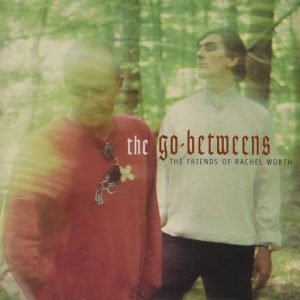 The Go-Betweens
The Go-Betweens
The Friends of Rachel Worth
A decade after they broke up, wry Aussie indie-popsters The Go-Betweens are bigger than ever. Last year brought both a Lost Album of ’70s tracks and demos, and Bellavista Terrace, a best-of comp. As expected, all the hoopla prompted The Go-Bees’ nucleus of singer-songwriters Grant McLennan and Robert Forster to reunite — a move that can either cement a reputation (think Steely Dan) or taint it (think CSNY). Thankfully, the delightful Friends of Rachel Worth should have the former effect. Sliding effortlessly into their old groove, McLennan and Forster deliver 10 new tracks of gentle pop sophistication buoyed by the wistful romance and literate wit of old. Those who need proof of the duo’s coolness quotient need only check the credits — the lads are backed at various times by all the members of Sleater-Kinney, whose endearingly loose performances provide a sweetly simple backdrop for warm, dark vocals that recall Lou Reed and Hugh Cornwell’s gentler moments. Nice to have you back, boys.
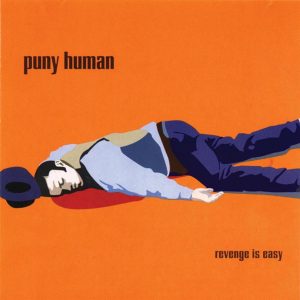 Puny Human
Puny Human
Revenge is Easy
Tags like Heavy Metal or Stoner Rock just don’t do justice to New York City’s Puny Human. Something like Giant Freaking Boulder Smashing You Right Between the Eyes and Crushing Your Skull Like an Eggshell Rock would be a better way to convey the absurd overkill and slamming power of these boys. Riff-laden, fuzz-busting tracks like Jesus Has My Leg, Way of the Intercepting Fist and Stink of Two Men (not to mention their cover of Aerosmith’s Rock in a Hard Place) tell us these guys have spent plenty of quality time with albums by Black Sabbath, Blue Cheer, Fu Manchu, Kyuss and Tad. And their wailing wah-wah guitars, muscle-car boogie and cowbell-rock blast makes it clear they were paying attention. You’ll do the same if you know what’s good for you. After all, Revenge is sweet.
 Los Amigos Invisibles
Los Amigos Invisibles
Arepa 3000: A Venezuelan Journey Into Space
“This is your captain speaking. Welcome on board Arepa 3000 Airlines’ flight out of this world. Once we reach our cruising altitude, our flight attendants will be passing out drinks with little umbrellas in them and complimentary headsets, which you can use to listen to our recommended, musical selection, the second album from eclectic Venezuelan dance band Los Amigos Invisibles, available on former Talking Head David Byrne’s Luaka Bop label. Actually it’s the only musical selection on this flight — since the Amigos’ joyfullly intoxicating, irreverently multi-culti style encompasses everything from salsa, bossa nova and tropicalia to acid jazz, classic disco and even drum and bass, you really can’t go wrong. So put your seat all the way back and relax. We’ll be turning off the fasten seat-belt sign right now, so feel free to form a conga line and move around the cabin. Our journey will last 66:16, but you won’t be coming down for quite some time after that. Enjoy your flight.”
 The Presidents of the United States of America
The Presidents of the United States of America
Freaked Out & Small
You shoulda known this screwball Seattle trio would pick an election year to stage a comeback. And judging by the relaxed, cheerful nature of this new third CD, The Presidents of yadda yadda yadda are tanned, rested and ready to resume office after their two-year layoff. And it seems they’re out to snag a larger slice of the popular vote than before. Freaked Out and Small is easily the band’s most commercial, sophisticated and varied album yet — guitarist Chris Ballew sounds like he’s playing an entire guitar instead of just a couple of strings, and the majority of these tracks eschew the choppy brittleness and skewed surreality of Lump and Peaches in favour of a more danceable new-wave sound. Of course, it’s all relative; this is still a band that writes gleefully goofy songs about George Lucas’s Death Star, Jupiter and how boring jazz is. As long as they stick to that platform, they’ve got my vote.
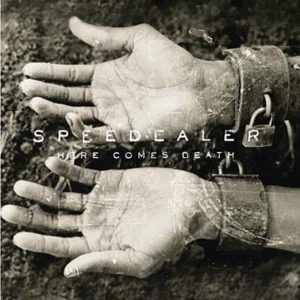 Speedealer
Speedealer
Here Comes Death
Every now and then, amid all the coldly calculating, mercenarily materialistic manoeuvres and machinations of the music industry, somebody does something right — stupidly, suicidally right, but right nonetheless. The latest genius: Whoever just signed white-trash punks Speedealer to a record deal and reissued their fire-breathing 1999 sophomore CD Here Comes Death, which lived up to its name when the band’s old label went bellyup. Don’t get me wrong; I’ve been behind Speedealer since their name began with REO (a lawsuit from some unamused rock hasbeens forced them to drop the prefix). And make no mistake: Death rocks. The double-clutching, pedal-to-the-metal frenzy of like Hit It and Run (running time: 92 seconds), You Lose, I Win (59 seconds) and Hate You Better (58 seconds) makes Zeke seem like The Carpenters. But let’s face facts — in this era of bubble-pop and rap-rock, a band that sings the praises of absinthe, amphetamine abuse and naked aggression won’t shift enough units to pay for lunch at the executive board meeting. Better buy this sucker while you can; I don’t expect it to be around much longer than the average Speedealer tune.
 Vancouver Nights
Vancouver Nights
Vancouver Nights
Angst is fine for Canadian indie-rock. But pop, sweet pop, is the sound that truly rules the world. Just ask Vancouver’s Sara Lapsley. She used to be in all-female aggro-rock outfit Kreviss. Then she switched to the kinder, gentler sounds of her new foursome Vancouver Nights, which features Destroyer’s Dan Bejar on guitar. And the world has beat a path to her door. Well, at least the Japanese. This self-titled CD is reportedly a hit in the Far East. And no wonder. With its bouncy, buoyant grooves, tangy, tasteful melodies and charming bedroom-fi production vibe, Vancouver Nights make everything seem OK and put a benign smile on your mug — even when Lapsley is telling you, “I never really loved you anyway.”
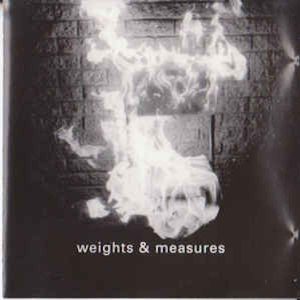 Weights & Measures
Weights & Measures
Weights & Measures
Complex, prime number-based time signatures + elaborate, prog-rock arrangements x stop-start dynamic syncopation – vocals ÷ angular, Frippish guitar solos = math rock. And without a doubt, instrumental Ottawa trio Weights and Measures have the formula down pat. This debut self-titled disc has 10 technically superb, cleverly titled tracks (When Robots Fall in Love, A Flying Arrow Cannot Remain Where it is Nor be Where it is Not) that put this post-rock threesome in a class with like-minded Chicago outfits such as Don Caballero or Shellac — although these nice Canadian kids have neither the former’s unsettling aggression nor the latter’s off-putting cynicism. Admittedly, it’s mostly left-brain stuff — more precision than passion — but thanks to skillful songcraft and surprising engaging performances, Weights and Measures adds up to more than the sum of its parts.
 Who Wants to be a Millionaire
Who Wants to be a Millionaire
Various Artists
Here’s a fastest-finger question. Place these tracks from the new Who Wants to be a Millionaire soundtrack album in order from least to most annoying: A) The Aqua-style Eurodisco song I Want to be a Millionaire; B) The classic Pennies From Heaven, crooned by host Regis Philbin himself; C) A techno dance mix built from sampled snippets of the show’s theme music; D) The rest of the CD, which consists of classic rock tunes with titles sorta vaguely related to the show (ELO’s Telephone Line, Queen and David Bowie’s Under Pressure, etc.), punctuated by bits of dialogue from the show and plenty of applause. OK, time’s up. The correct answer, believe it or not, is B; A; C; D. And yes, dammit, it’s my final answer.


